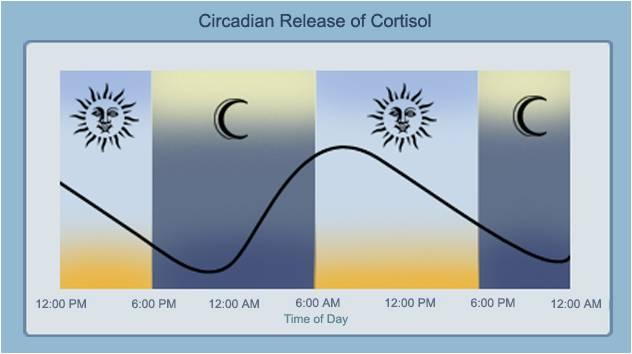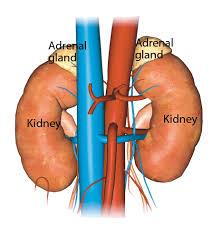- posted: Jun. 18, 2015
The Adrenal Glands
There is one adrenal gland that sit on top of each of your kidneys. They are made up of two parts. The adrenal glands have many functional roles in our endocrine system.
The adrenal cortex (the outer part) - Produces 3 main types of essential hormones
Cortisol is a life sustaining adrenal hormone essential to the maintenance of homeostasis. Called “the stress hormone,” cortisol influences many of the changes that occur in the body in response to stress including:
- Blood sugar (glucose) levels
- Fat, protein and carbohydrate metabolism to maintain blood glucose
- Immune responses
- Anti-inflammatory actions
- Blood pressure
- Heart and blood vessel tone and contraction
- Central nervous system activation
Cortisol levels fluctuate throughout the day and night in a circadian rhythm with the highest value in the morning and the lowest value at night. While it is vital to health for the adrenals to secret more cortisol in response to stress, it is important that bodily functions and cortisol levels return to normal after a stressful event. Unfortunately, the stress response is activated so often that the body does not always have a chance to return to normal. This can lead to health problems resulting from too much circulating cortisol and/or from too little cortisol if the adrenal glands become fatigued.
*See Dr. Petropolus to discuss if an Adrenal Stress Index test is right for you.

Aldosterone helps to control blood pressure by controlling the amount of fluid that the body holds onto. Aldosterone also directly affects the heart and blood vessels.
Androgens and estrogens are male and female sex-hormones. These hormones control the growth of the reproductive organs (testicles and ovaries), development of male or female characteristics, and some parts of behavior.
The hormones of the adrenal medulla are released after the sympathetic nervous system is stimulated, which occurs when you’re stressed and helps you deal with physical and emotional stress. The main hormones secreted by the adrenal medulla are listed below.
Epinephrine, otherwise known as adrenaline which is a hormone that rapidly responds to stress by increasing your heart rate and rushing blood to the muscles and brain. It also spikes your blood sugar level by helping convert glycogen to glucose in the liver. Glycogen is the liver’s storage form of glucose.
Norepinephrine, otherwise known as noradrenaline which is a hormone that works with epinephrine in responding to stress. However, it can cause vasoconstriction (the narrowing of blood vessels). This results in high blood pressure.
Symptoms of abnormal adrenal rhythm:
- Chronic stress and stress-related health problems
- Fatigue or lack of energy
- Muscle and joint pain or weakness
- Blood sugar dysregulation
- Osteopenia or osteoporosis
- Insomnia, sleep disturbances or difficulty waking
- Poor memory or difficulty retaining information
- Irritability or mood swings
- Changes in skin integrity, easy bruising or excessive stretch marks
- Frequent or chronic infections
- Hypertension
- Increased waist-to-hip ratio or abdominal obesity
- Anxiety or depression
Abnormal adrenal function can alter the ability of cells to produce energy for the activities of daily life. If you wake up in the middle of the night, have a hard time rising in the morning, or suffer from low energy throughout the day, you may have abnormal adrenal rhythms and poor blood sugar regulation that needs to be supported.
The maintenance of a stable blood sugar level depends on food choice, lifestyle, adrenal function and insulin activity. The Adrenal Stress Index panel measures stress hormones and insulin, to help ferret out the causes of fatigue, cravings and obesity.
Please call (303) 850-0880 to schedule an appointment with Dr. Petropulos to determine if the ASI test is right for you.
Locations
6940 South Holly Circle Suite 201
Centennial, CO 80112, US
Office Hours
Our Regular Schedule
8am - 1pm
3pm - 5pm
8am – 1pm
3pm – 7pm
Closed
Closed
8am – 1pm
3pm – 7pm
8am – 2pm
Closed
Closed
Closed
Closed
Closed


